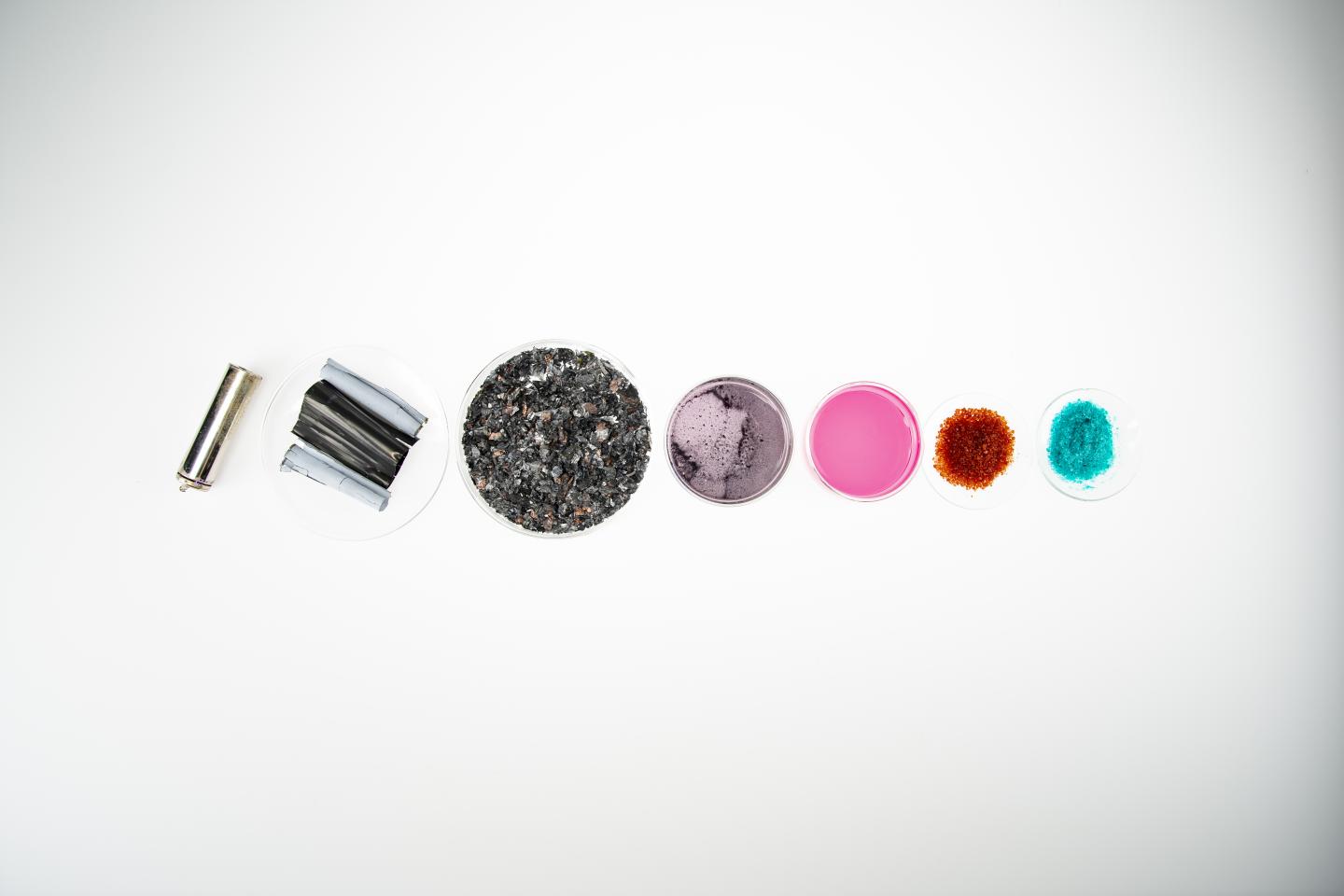Researchers conduct life-cycle assessment to determine the actual carbon footprint of recycling electric car batteries

Credit: Photo: Valeria Azovskaya/Aalto University
Helsinki, Finland — The EU will be home to 30 million electric cars by 2030 and the European Commission is preparing tough targets for recycling these and other batteries. Yet the impacts of battery recycling, especially for the sizeable lithium-ion batteries of the electric cars soon filling our streets, has been largely unstudied.
In a new study, researchers at Aalto University have investigated the environmental effects of a hydrometallurgical recycling process for electric car batteries. Using simulation-based life-cycle analysis, they considered energy and water consumption, as well as process emissions.
‘Battery recycling processes are still developing, so their environmental footprints haven’t yet been studied in detail. To be beneficial, recycling must be proven to be more ecological than producing raw materials- we can’t just assume recycling is automatically better, even though we know mining the raw materials has large environmental impacts, like high energy and water consumption,’ says Mari Lundström, Assistant Professor at Aalto University.
Battery recycling often uses smelting, which typically loses lithium and other raw materials. Novel hydrometallurgical processes, which separate battery metals from waste by dissolution, enable the recovery of all metals but consume large amounts of energy and chemicals, and often produce contaminated wastewaters.
According to the results, the carbon footprint of the raw material obtained by the recycling process studied is 38% smaller than that of the virgin raw material. The difference is even greater if copper and aluminium recovered during mechanical pre-treatment are included. The results also point to problem areas.
‘Life-cycle analysis identifies the areas where recycling can be improved. For example, we noticed that using sodium hydroxide as a neutralizing chemical significantly increases the environmental load of our process,’ says Marja Rinne, a doctoral student at Aalto University.
This kind of analysis, which the researchers say has been rarely done for battery recycling, can also be done before new processes are taken into use. It is useful for determining how certain choices or process parameters affect the environmental impacts of a process, so it can be a beneficial decision-making tool for both industry and policymakers.
‘Simulation-based life-cycle analysis can be used even at the design stage of recycling processes to assess the environmental impacts and find the best possible options,’ says Lundström.
The potential benefits of finding the best recycling processes are substantial; the EU aims to recycle 70% of the mass battery waste by the end of the decade. It is also setting targets for specific metals used in batteries: 95% of cobalt, nickel and copper, and 70% of lithium must be recycled by 2030. It is estimated that the global lithium battery recycling market will be worth 19 billion by 2030.
According to Lundström, now is the time to develop alternative recycling methods, as the amount of battery waste will skyrocket with the rapid growth of electric cars.
‘We will have a massive need for recycling, and we have to find the most viable and ecological recycling processes. Research into technological innovations and their environmental impact go hand in hand,’ she says.
In the study, the team also assessed the industrial scalability of the process and made recommendations on how to best modify the process accordingly.
###
Finland, where Aalto University is located, seeks to be a pioneer in sustainable battery metal production and recycling.
Media Contact
Professor Mari Lundström
[email protected]
Original Source
https:/
Related Journal Article
http://dx.





